It is overland tour to Mt. Wudangshan in Hubei province from Xian. Hubei province is located in mid China connecting many provinces in China by convenient transportation of railway, cruise, and flights......
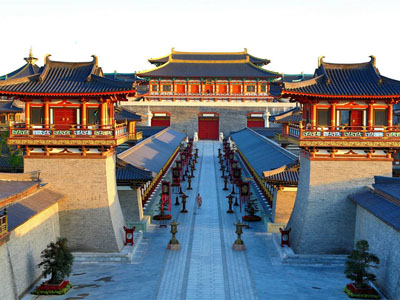
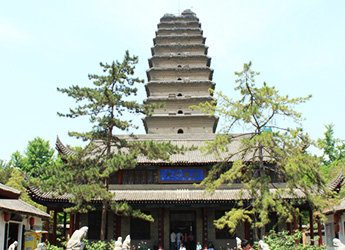 The Small Wild Goose Pagoda Scenic Area is located in the southern suburb of Xi'an, about 2 kilometers to the south of the City Wall. Covering an area of 16.3 hectares (40.4 acres), it mainly consists of the Xi'an Museum, the ancient Jianfu Temple built in the year 684 AD during the Tang Dynasty (AD 618-907) and the famous Small Wild Goose Pagoda. The scenic area has become a wonderful leisure site for the appreciation of cultural relics, sightseeing and entertainment.
The Small Wild Goose Pagoda Scenic Area is located in the southern suburb of Xi'an, about 2 kilometers to the south of the City Wall. Covering an area of 16.3 hectares (40.4 acres), it mainly consists of the Xi'an Museum, the ancient Jianfu Temple built in the year 684 AD during the Tang Dynasty (AD 618-907) and the famous Small Wild Goose Pagoda. The scenic area has become a wonderful leisure site for the appreciation of cultural relics, sightseeing and entertainment.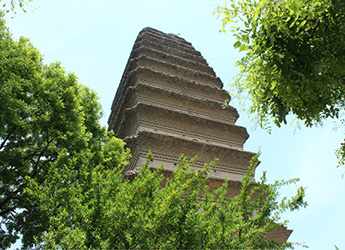 A giant iron bell 3.5 meters (11.4 feet) in height and about 10 tons in weight resides in the Jianfu Temple. It makes a magnificent clear sound that can be heard more than three miles away. The elegant pagoda along with the bell is known as 'The Morning Bell Chimes of the Pagoda' and is considered one of the eight major cultural sites in the province.
A giant iron bell 3.5 meters (11.4 feet) in height and about 10 tons in weight resides in the Jianfu Temple. It makes a magnificent clear sound that can be heard more than three miles away. The elegant pagoda along with the bell is known as 'The Morning Bell Chimes of the Pagoda' and is considered one of the eight major cultural sites in the province.
It is overland tour to Mt. Wudangshan in Hubei province from Xian. Hubei province is located in mid China connecting many provinces in China by convenient transportation of railway, cruise, and flights......
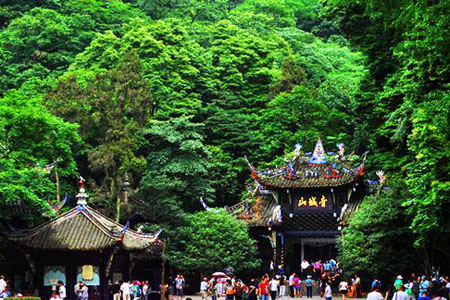
One day classic tours of Chengdu to Mt. Qingchengshan and Dujiangyan Dam will show tourist the profound of ancient Chinese wisdom and culture in harmony relation with the world. ......

The most classic one day Chengdu tours will bring tourist to Chengdu Giant panda garden and Leshan giant buddha with private travel guide and car in Chengdu, extremely convenient and easy!......
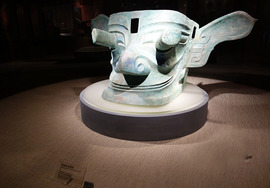
One days best Chengdu tours bring tourist to Sanxingdui museum and giant panda garden with private guide and car, making your tour in Chengdu easy. ......
This panda volunteer work provide tourist with one days unique experience of Panda volunteer project works and bring them an intimate touch with Giant pandas, also the best way to learn deep about pand......

It is tour from the only one operator in Chengdu tours market offering Emeishan and Leshan tours by bullet train. Our highlights including Leshan Giant Buddha and Mt Emeishan. ......

